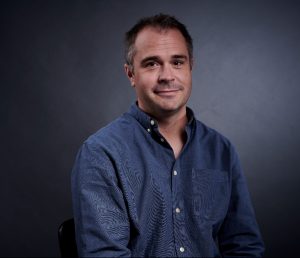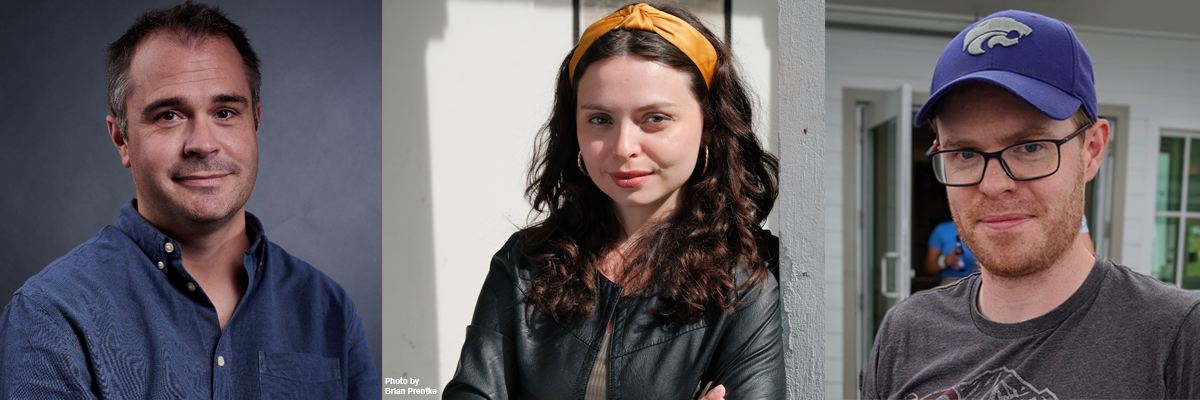City’s Journalism alumni are well known for their excellent work, and this was demonstrated at the British Journalism Awards 2021 with several awards and special mentions. We caught up with some of the recognised journalists to hear their thoughts about the Awards, journalism today, and their time at City.
The British Journalism Awards, organised by PressGazette, were celebrated for the 10th year in December 2021. According to the PressGazette the Awards celebrate “… the best public interest journalism produced for a UK audience”. In 2021, 27 City alumni were shortlisted for the Awards, and at the December ceremony, three City alumni received an award and four were Highly Commended for their work within their categories. As City’s Journalism department takes great pride in the achievements of its alumni, it too has recently been ranked 1st in the UK for graduate prospects in media and communications by Sunday Times Good University Guide 2022.
We caught up with Sophia Smith-Galer (Broadcast Journalism, 2017) – British Journalism Awards winner for Innovation of the Year, Kevin Crowley (Newspaper Journalism, 2008) – Highly Commended in the British Journalism Awards for his Energy and Environment Journalism, and Kit Chellel (Journalism and Contemporary History, 2003) – British Journalism Awards winner for Crime and Legal Affairs Journalism, for a Q&A about the awards, journalism today, and their time at City.
What does the recognition mean to you?

Sophia Smith-Galer, Senior News Reporter at VICE World News: “It’s immensely validating; I’ve often been told to stop TikTokking by bosses or that social media isn’t a worthy distribution tool for journalism. I stuck to my guns because I could see the impact that I was making and am very fortunate to have found individual editors and commissioners who’ve supported my work as well as a new job at VICE that is developing storytelling across vertical video. With this award, I’ll hopefully get more journalists to see the importance of it!”
Kevin Crowley, US Energy Reporter at Bloomberg: “Wherever you are in the world journalism is a tough, competitive business so it’s great to catch a breath and enjoy a little external recognition. Even being mentioned among such a formidable group of journalists in a really strong year for environmental reporting was such a thrill.”
Kit Chellel, Senior Writer at Bloomberg: “It was lovely for me and co-writers Liam [Vaughan] and Ben [Bain] to be recognised with an award. It was tough to get the story, against some strong opposition from various people and entities highlighted in the piece, who didn’t want it to come out. Oil trading is a secretive and insular world, but after spending months interviewing dozens of sources and collecting documents (with some memorably weird moments along the way), I think we ended up with a story worth telling, and one that non-financial folks could enjoy.”
What do you think made your work stand out?
Sophia: “I remain the only journalist in the UK that is using TikTok as both a publishing and newsgathering tool; it’s something I trained myself to do using the different social, digital and broadcast skills I picked up in both my day job and spare time. My TikTok ideas themselves don’t have any editorial meetings or backing – it’s just me and my phone and I can’t believe I was up against entire teams who do very impressive work in my category!”

Kevin: “Timing was important. BP and Shell had made some big strategic pivots on climate earlier in the year, but Exxon was seen by many as one of the last holdouts in Big Oil. Our stories revealed that Exxon’s internal projections showed how its plans to increase oil and gas production would cause emissions to surge, at a time when the scientific and political consensus was that the world needs to get to net zero by mid-century or sooner. In the months after our stories were published Exxon suffered a big investor pushback resulting in board changes and a new climate strategy. It shows we were asking the right questions at the right time.”
Kit: “All the finalists in the British Journalism Awards are top-notch journalists, so we definitely got lucky to win. The most gratifying thing about the Essex Boys series was that we were first to break the story–no one had even heard of Vega before we wrote about them–and we were also first with the follow-up, in-depth feature, about who they were and how they did it. Our coverage made the front page of the Times, the Telegraph and got a double-page spread in the Mail.”
In your opinion, what is journalism’s biggest challenge right now?
Sophia: “Well, to keep it specific to my field and specialism – retention of young talent. Reporters who are also content creators are trying really hard to get their skillsets and followings recognised by senior management, especially when these skillsets and followings are responsible for outlets securing stories or larger audiences and are built up independently of the day job. ‘On screen’ talent still means linear broadcast, which no one my age watches – so what happens to all the people who are on a screen of a different kind? If they aren’t being valued, they’ll find another job where their skillset is more treasured.”
Kevin: “Journalism is under attack all over the world right now and misinformation campaigns are becoming increasingly sophisticated. The biggest challenge for journalists is to rise above the noise and earn the public’s trust every day by writing factual stories with integrity and vigour.”

Kit: “For me, the biggest challenge facing journalism right now is resources. Doing the most difficult and significant work takes time, and money. It’s hard for many media outlets to fund a six-month investigation into something that may or may not be a story. Hopefully, the industry is getting out of the habit of giving its main product away for free online, and we’ll start to see news orgs make enough money from digital subscriptions or subscriber contributions to maintain independence and employ skilled professionals.”
Finally, how did you find your time studying at City?
Sophia: “My time studying at City was invaluable; in fact, I took Professor Jane Singer’s Innovation module, which helped me realise how important it was to innovate our product constantly as journalists. She put in so much effort to always make sure that we had the best experts in the business attend our lectures and was always on top of new developments in the industry, so I am really grateful to her for giving me the encouragement that innovating journalism isn’t simply an add-on, it’s an existential necessity.”
Kevin: “City was a great experience, a good grounding in journalism with really high calibre teachers and fellow students. I enjoyed the practicality of the course, not too much theorizing, more get out on the streets and find a story. I remember spending a lot of time wandering around Hackney finding people to talk to. The best part was having journalists come in and share their stories, tips and hacks. The worst? Shorthand. I only passed on the very last day. But it’s such a useful and cool skill, that’s becoming a lost art. I still use it today.”
Kit: “The best thing about studying at City was the calibre of the tutors. Anna McKane stands out in my mind. And also the opportunity to go out and get your hands dirty with real-world assignments and work-experience in real newsrooms.”
Huge congratulations to Sophia Smith-Galer, Kevin Crowley and Kit Chellel, and all the City alumni who received recognition at the British Journalism Awards 2021, it’s a great achievement! For more information about the winners and highly commended, the categories, and the work that made the journalists stand out, please visit the PressGazette’s webpage.
